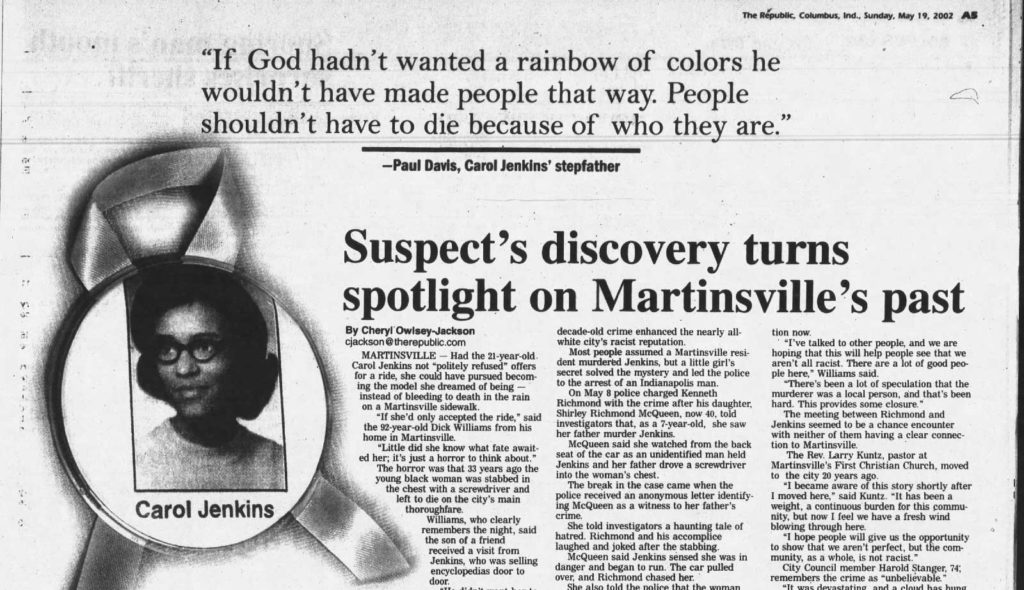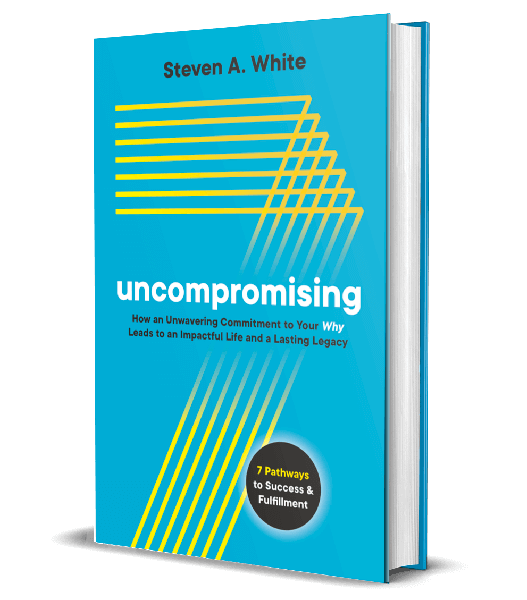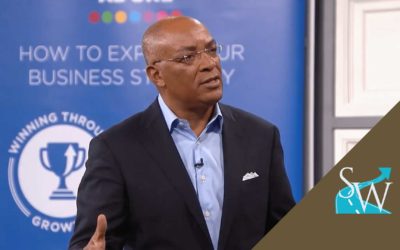One of the greatest challenges of my life can be summed up in a single word: exhaustion. I don’t know if that’s a bad thing, and, in fact, I believe there are times when it can be a good thing. But I know for certain that it’s a very real thing and that it played a very real role in why I wrote this book.
I’m not talking about the exhaustion that comes from a hard day of work or even from a stretch when life seems unusually stressful, although I’ve certainly experienced that, too. In 2020, for instance, the pressures of leading my family and serving as president of the West Division of Comcast Cable were particularly acute. The pandemic, natural disasters, and social unrest all collided during a tumultuous presidential election year. It was a tiring time for most people in the world, me included.
What I’m talking about, however, is more cumulative in nature—not just weeks or months or even years, but a lifetime in the making. It’s what some would label as the “burden of my black experience.” And the only way I know how to sum it up is with that one word: exhaustion. This isn’t a book about race or a book written just for a black audience. It’s a book about an uncompromising approach that will help anyone, regardless of race or gender or any other factor, get more meaning out of life. But you will see evidence of my exhaustion woven throughout these pages, so I believe understanding a little about my experience will provide some context that will help make my message more personal, more meaningful, and more relevant to your own journey.
Unlike many people in America, including several I’ve known, I have never experienced a defining moment that I would link to racism. I haven’t been immune to racism, but I have never been roughed up by the police or overtly mistreated by coworkers for no other reason than I was born with black skin. In fact, my most personal experience with overt racism happened one evening about forty years ago when some friends and I stopped in Martinsville, Indiana, to fill up with gas while driving home from college. Martinsville had a reputation as a racist community, primarily because of the 1968 murder of Carol Jenkins-Davis. She was a young black woman who was selling encyclopedias door-to-door in the small town when someone bludgeoned her with a screwdriver. Kenneth Richmond, a man who was passing through and didn’t actually live in Martinsville, was arrested and charged with the crime, but not until thirty-four years after it happened. That’s when his daughter came forward and said she had witnessed the slaying as a seven-year-old. But Richmond died before going to trial, so he was never convicted.
We didn’t know any of that, of course, when we stopped for gas. All we knew was the town’s reputation, and that was enough to make us a little nervous. And, unfortunately, it lived up to our low expectations. When we discovered that the pump wasn’t working and mentioned that fact to the attendant at the station, he responded by using the n-word while suggesting that we dig some gas out of the ground. We chose a different option and found another place to fill up the tank.

Other than that episode, I’ve been fortunate when it comes to avoiding blatant encounters of racism. The realities that come with being black in a mostly white corporate America, however, impacted me in subtle ways that wore on me over time. So, my exhaustion has come from decades of grinding out a path to a better life in light of those realities.
For starters, I have felt exhausted from what often seemed like a never-ending battle to get ahead. Many people, white and black, have shown me grace and poured into my life in ways small and large that helped me see the goodness of humanity, but I’ve also felt the near-constant winds of resistance from others. There have been days when it felt like people wouldn’t give me the benefit of the doubt, that there weren’t very many people rooting for me to win, or that some people were actively working to make me lose.
Again, it typically wasn’t overt, but there was just enough evidence to make me wonder and tempt me to cast blame or accusation or, worse, give up.
I knew that some of my battle was born from reality— from the systemic inequality of bad policies, bad systems, and, occasionally, bad people. And I knew, intellectually, that part of the battle was created by my perceptions. But it was all real to me, and it made the journey a grind. I felt certain that what took years to build could disappear in an instant. There was never a day when I thought I could let up—when I didn’t feel like I had to dress nicer and work longer, harder, and smarter than everyone else around me or else…poof! Gone.
At the same time, my successes in life—as a husband, father, friend, and corporate executive—didn’t happen on my own, and I have a tremendous sense of gratitude for those men and women (of all skins colors) who helped me fight through the exhaustion and find my way forward. Ironically, however, that’s also another factor in my fatigue— I’ve always felt a pressure to succeed and give back. There was (and still is) an unwritten code in the black community when I was growing up that said if you make something good out of your life, you owed a debt to those who paved a path for you—and you better make a payment. It’s a philosophy rooted in the idea that to whom much is given much is expected, and it is the heartbeat of progress.
When I look into the black community today, I see success stories in arts, entertainment, sports, academics, science, business, and politics. I also see the absentee fathers, the high incarceration rates for black males, the black-on-black crime, and the systemic racism and failed policies of politicians of every persuasion.
Most of all, however, I see hope and opportunity.
We’ve come a long way, but we can do better. We must do better. Society has its part to play. Politicians have their part to play. But it starts by looking in the mirror. We’ve all been given what we need to make a positive difference in a world—to build a life that matters for ourselves and to others. And for as long as I can remember, I’ve felt a deep sense of responsibility to do my part.
When it became clear I had a chance to get out of the inner city and all of its negative trappings, I felt the weight of my race on my shoulders. Some call this black guilt. Don’t let your race down. Whatever you call it, I felt I had to succeed for myself and my family, but also for all African Americans past, present, and future.
Not only that, but I felt the pressure to avoid failures or even show signs of weakness that would give ammunition to the critics.
The message I heard loud and clear, even if it wasn’t always spoken, went something like this: People died for you to have the opportunities you are getting. They died so you can go in any restaurant you want to eat in. They died so you can vote. They died so you can go to college. They died so you can get a job in the corporate world. They died so you can buy a house in a nice neighborhood. They died, in short, so you can have it better than they had it. If you don’t make good on your opportunities, you are letting down all those folks who sacrificed for you. And if you do make good, you better pay it forward.
Many trailblazers, of course, didn’t die for me, but they all sacrificed in ways that benefited me. I never knew most of them. They stood up for me by marching arm-in-arm across bridges, sitting in seats in the forbidden front of a bus, writing letters from a jail cell, preaching from a podium on the public square, and debating for policy changes everywhere from the city halls in Middle America to the halls of Congress in Washington, DC.
Others came alongside me during my journey, from the white people who tipped me when I was an eleven year- old with a paper route based on the quality of my service rather than the color of my skin to the teachers, coaches, mentors, friends, and family members who lovingly helped me along my way.
I wrote this book partly to pay my debt to those people— not to pay it off, because that’s not possible, but to make a payment toward it. I have a responsibility, but I also feel genuinely grateful. I see this book as sort of my love letter to the people who have given me a hand up. What better way to recognize them and honor them than by sharing with the world what they taught me? What better way to pay it forward?
That’s what makes my exhaustion fade into the background— the fact that the day-in, day-out grind could wear me down, but it could never wear me out.
I’ve come to recognize the reality that all of us are dealing with something—our own unique obstacles and trials that shape us. But while my exhaustion shaped me, it doesn’t define me. It’s my response to it that defines me, and I’m eager to share what I’ve learned, both from my successes and my mistakes, about the pathways that have helped me overcome it.
My hope is that no matter your race, no matter your background, and no matter what challenges are shaping your experience, this book will open your heart and mind to an uncompromising approach to a better life. It won’t eliminate your grind, but I truly believe it will help you find contentment and purpose in your journey.
Adapted and reprinted with permission from Uncompromising: How An Unwavering Commitment to Your Why Leads to an Impactful Life and a Lasting Legacy by Steven A. White (Post Hill Press, 2022).






0 Comments